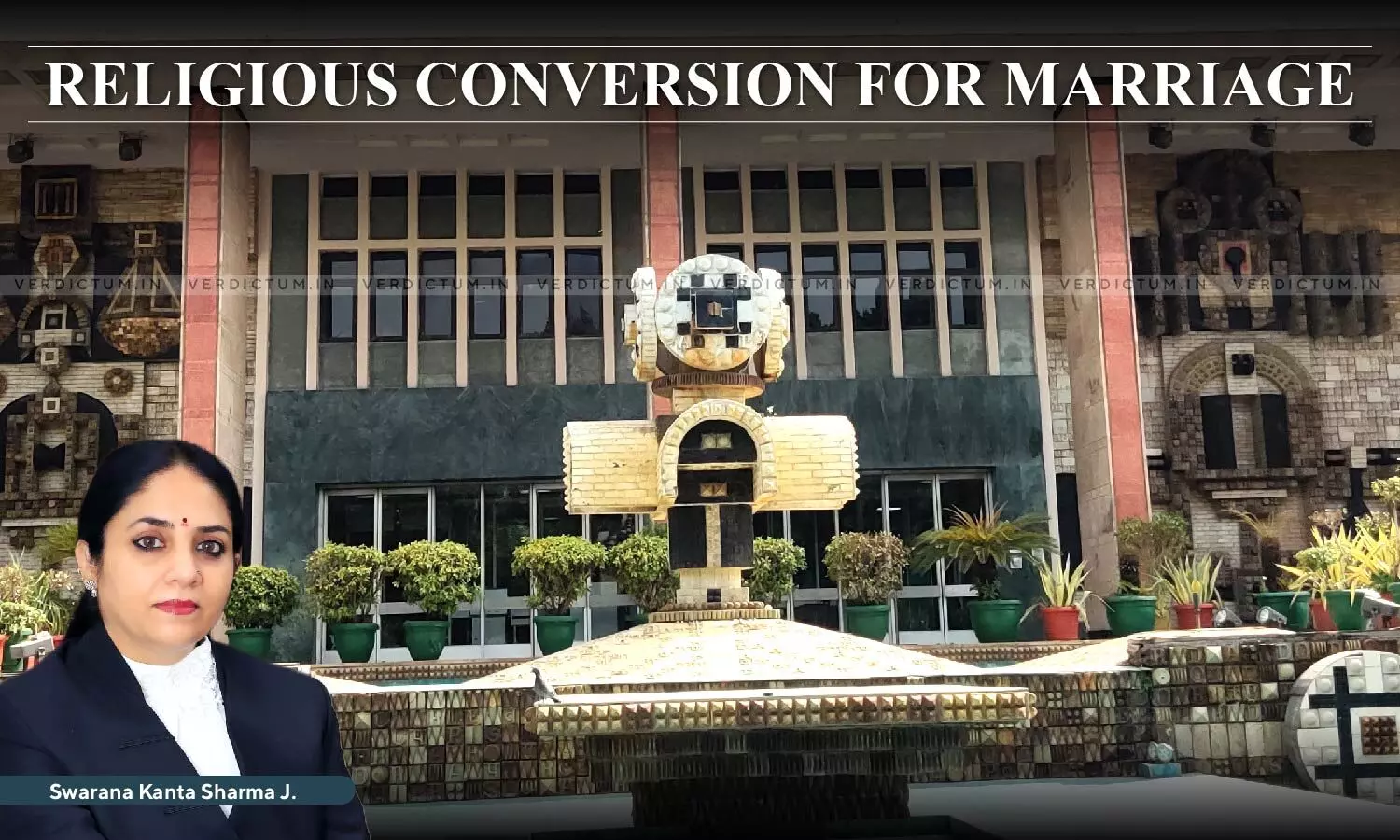
Wife's Refusal To Return To Violent Matrimonial Home Cannot Be Treated As Provocation: Delhi HC Denies Bail To Husband
 |
|The High Court said that to accept the plea of of anger at the spur of the moment would amount to legitimizing the notion of patriarchal entitlement which reduces women to subservience.
The Delhi High Court, while denying bail to a man, observed that his wife’s refusal to live with him due to the continuous violence and indulgence in criminal activities could not be treated as 'provocation'.
The Petitioner was accused of shooting his wife as she refused to live with him due to his involvement in criminal activities.
The Bench of Justice Swarana Kanta Sharma observed, “The victim in this case as prima facie apparent from the record had refused to live with him due to the continuous violence as used to beat her after consuming alcohol and was continuously indulging in criminal activities, had been jailed on several occasions, and had contracted AIDS due to his activities could not be taken as behaviour of a wife which could have infuriated him so as to premediate to try, to kill her from a close range.”
Advocate Gautam Khazanchi represented the Petitioner, while Advocate Naresh Kumar Chahar represented the Respondent.
Case Brief
The Petitioner sought bail for the commission of offences punishable under Sections 307/506 of the Indian Penal Code, 1860 and Sections 25/27/54/59 of the Arms Act, 1959.
The Petitioner was accused of shooting his wife, as she refused to reside with him due to his involvement in criminal activities.
It was contended that the Petitioner fired only one shot and the bullet hit her in heat of the moment, but he had not taken undue advantage of the situation and did not fired a second shot, which proves that he did not have intention to kill his wife.
Court’s Observation
The Delhi High Court was of the opinion that the Petitioner himself argued that he had shot the victim as he was angry and infuriated on the refusal of the victim to accompany him to the matrimonial home, and it was at the spur of the moment and in heat of passion that he had shot at her.
“Claim of or plea of being angry as a husband on refusal of wife to accompany him to the matrimonial home brings to surface the patriarchal entitlement that a person feels entitled to, which this Court cannot support…Mere refusal of the victim/wife to accompany the accused would not constitute sudden provocation. The intent of the argument that the marital disobedience by the wife had provoked the husband to have tried to kill her has to be met with the finding and assertion by this Court that assertion of the wife to not to be subjected to domestic violence cannot justify violence by a husband”, the Court added.
Further, the Court opined that wife’s refusal to live with the Petitioner on account of continuous violence, criminal activities, jailed on several occasions, and had contracted AIDS could not be taken as behaviour of a wife which could have infuriated him so as to premeditate to try, to kill her from a close range.
“To accept the plea of anger at the spur of the moment would amount to legitimizing the notion of patriarchal entitlement which reduces women to subservience and even her refusal to return to violent matrimonial home is treated as provocation”, the High Court observed.
The Court said that the offences of domestic violence of such nature where the intention is to kill are to be viewed with seriousness and the marital relationship in such cases would be treated as aggravating and not mitigating factor.
Accordingly, the bail was denied to the Petitioner.
Cause Title: Sushant Raj V. State (NCT of Delhi) (Neutral Citation: 2025:DHC:7200)
Appearance
Petitioner: Mr Gautam Khazanchi, Ms Aditi Kukreja and Mr Ayush Sachan, Advocates
Respondents: Mr. Naresh Kumar Chahar, APP for the State with Ms. Puja Mann and Mr. Chandrakant, Advocates